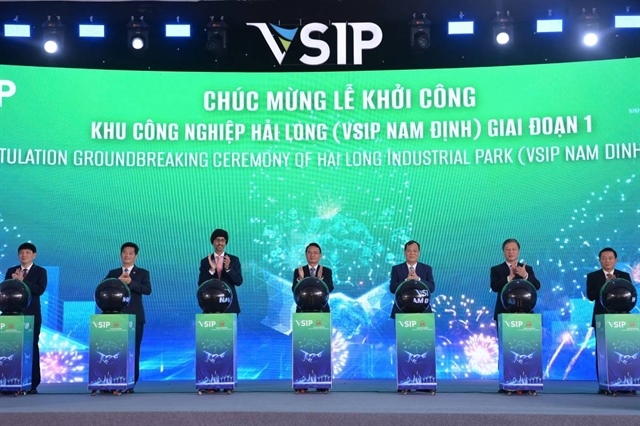New laws ease foreign property buys
New laws ease foreign property buys
The National Assembly recently passed the Housing Law and the Law on Real Estate Business. The laws are being hailed as a breakthrough for the real estate market according to Nguyet Nguyen, senior associate from Mayer Brown JSM.

Five years ago, the National Assembly passed pilot Resolution 19 allowing foreigners to purchase houses. However, under the resolution, a foreigner could only buy one apartment in commercial housing projects for a maximum period of 50 years, and the apartment could only be purchased for residential use.
According to the Housing Law (2014), which will be implemented next summer, investors developing residential projects in Vietnam, foreign-invested enterprises, branches and representative offices of foreign enterprises, foreign investment funds and branches of foreign banks operating in Vietnam, and foreigners permitted to enter Vietnam are all allowed to buy residential houses in commercial residential projects.
In terms of foreign organisations, the new law now opens house ownership to almost forms of investment by foreign organisations in Vietnam. The ownership period for foreign organisations will be the same as the period of their investment certificates including extensions. The new law allows foreign individuals to purchase houses which can be leased out. The ownership period of foreign individuals is 50 years and can also be extended.
Foreigners can buy, receive as donation, or inherit, but on no account can own more than 30 per cent of the available apartments in one condominium building. For houses in a ward administrative unit, the permitted subjects may purchase, receive as donation, or inherit only a maximum of 250 houses.
Regarding to the rights of foreign organisations and individuals to purchase offices and factories, and the rights of foreign-invested enterprises to lease residential houses, offices for sub-lease purposes, the 2014 Law on Real Estate Business allows foreign organisations and individuals to purchase constructed facilities for use as their head offices, offices, production, business or service functions. Foreign-invested enterprises are allowed to lease residential houses and constructed facilities for sub-lease purposes.
Developers of residential projects shall be guaranteed by a commercial bank for selling or leasing out-selling residential houses formed in the future. Should developers fail to hand over residential houses as agreed in the sale, lease out-sale contract, the purchaser or the lessee-purchaser may request the guarantor to return the advance and other payments they have made to the investors.
This is the first time guarantees in the sale of property have been incorporated into law. The provision is intended to ensure that developers are financially viable and greater security is provided to buyers.
In addition, the revised Law on Real Estate Business stipulates that the legal capital for real estate businesses not to be less than VND20 billion ($952,000), as compared to the legal capital of VND6 billion ($285,000) under the current laws. However, as development of a real estate project in reality requires large investment capital, this adjustment of the legal capital is reasonable, it is the first step to identify and sort out financially capable investors in this sector.
The new Law on Real Estate Business has also abolished the insistence in current laws that real estate trading floors are mandatory. This provision helps to reduce certain procedures in real estate business.
Another important highlight is the assignment of the whole or part of a project. While investors under the current laws may only assign the whole of a residential project, an industrial zone infrastructure project or a new urban project, the 2014 Law on Real Estate Business allows an investor of a real estate project (not limited to the three above types as in the current laws) to assign the whole or part of such a project to another investor for the latter’s continued investment. The assigned project must satisfy certain conditions as stipulated by law. The assignment must not change the objectives and contents of the project and must protect the interests of the customers and interested parties.
Under the current laws, the minimum construction floor area of each apartment shall be 45 square metres, the minimum construction area of a terraced house shall be 50sqm with a frontage not less than five metres. For a villa, the height may not be more than 3 floors and the construction area must not be more than 50 per cent of the land area.
However, under the 2014 Housing Law, restrictions on minimum construction area are abolished. Instead, investors will be able to decide minimum construction area based on detailed construction zoning plan and the investment approval of the project. As such, the minimum construction area for each house type shall not be regulated in the 2014 Housing Law, but be decided upon by the investors themselves.


























